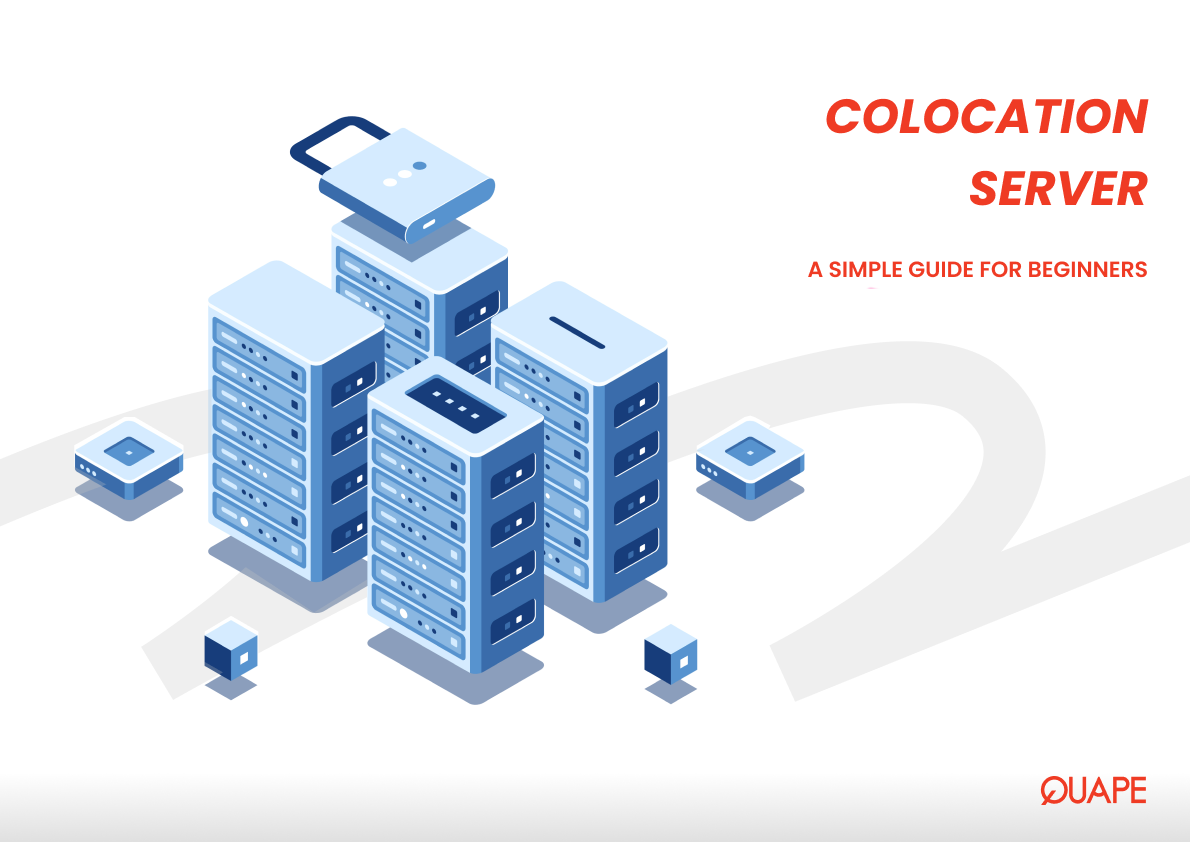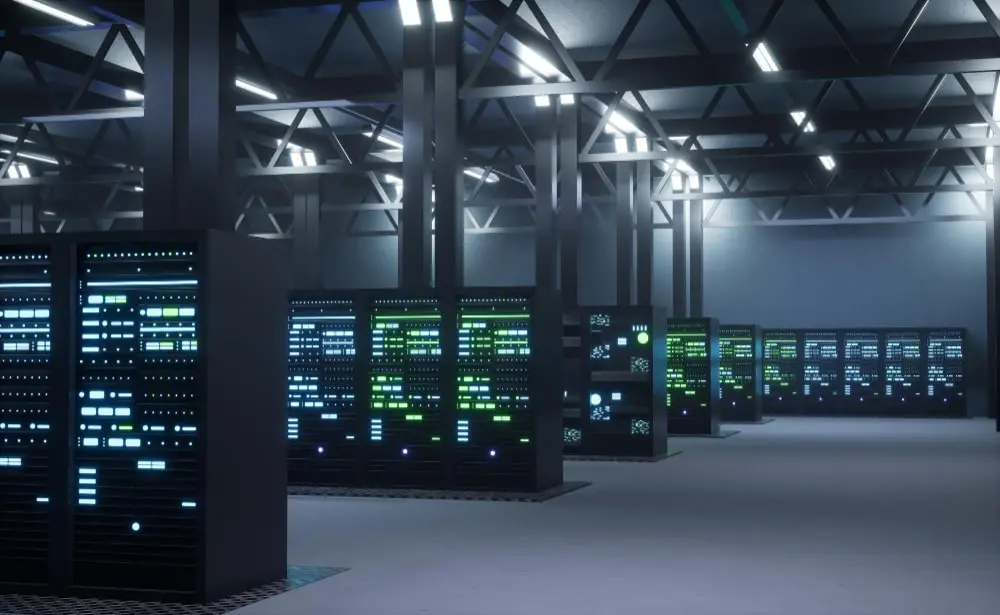In the world of web hosting, most businesses choose between shared hosting, a VPS, or a dedicated server. But for enterprises with specific needs for control, security, and scalability, there’s another powerful option: server colocation. While it may sound complex, the concept is quite straightforward. Colocation is the practice of placing your own physical server hardware in a professional data center.
This approach combines the benefits of owning your equipment with the security and infrastructure of a high-end facility. In this simple guide, we’ll explain what a colocation server is, how it works, and why it’s a popular choice for businesses that have outgrown traditional hosting solutions.
Table of Contents
ToggleUnderstanding the Basics: What is Colocation Server?

Colocation (often shortened to “colo”) is a type of hosting arrangement where a business rents space in a third-party data center to house its own servers and networking hardware.
Here’s the core idea in three simple steps:
- You Own the Server: You purchase and own the physical server hardware, software, and applications.
- You Rent the Space: You pay a fee to a colocation provider to house your server in their secure, professional data center.
- They Provide the Environment: The data center provides the essential infrastructure, including a reliable power supply, high-speed internet connectivity, cooling, and advanced physical security.
Think of it as renting a secure, climate-controlled garage for your high-performance car. You own the car and are responsible for its maintenance, but the garage provides the optimal environment, security, and power for it to run perfectly.
Colocation vs Dedicated Hosting: What’s the Difference?
The distinction between colocation and dedicated hosting can be confusing, but it’s a key concept to grasp.
- Dedicated Hosting: The hosting provider owns, manages, and maintains the server hardware. You simply rent the server and its resources on a monthly basis. You have full access and control over the software, but you don’t own the physical machine.
- Colocation: You own the server hardware. You are responsible for its purchase, maintenance, and replacement. The colocation provider’s responsibility is limited to providing the physical space, power, cooling, and network connection.
Colocation gives you ultimate control over your hardware specifications and configurations, making it the preferred choice for businesses with very specific or custom requirements.
How Does Colocation Work?
The process of getting started with colocation is typically broken down into a few key phases:
- Server Purchase & Setup: You buy or build your server hardware to your exact specifications. You install your operating system and applications and configure everything to your liking.
- Choosing a Data Center: You select a colocation provider based on factors like location, reliability, security, power redundancy, and network connectivity.
- Server Transport: You physically transport your server to the data center facility. Many providers assist with this process.
- Rack Space & Power: Once at the data center, your server is installed in a secure rack. The provider plugs your server into a power source and a high-speed network connection.
- Remote Management: From that point on, you manage the server remotely via the internet. The data center staff can provide “remote hands” support for physical tasks like rebooting the server or swapping out a hard drive, but all software and operating system management is your responsibility.
Key Benefits of Using a Colocation Server

Colocation offers a compelling set of advantages, particularly for businesses that have outgrown the limitations of shared or dedicated hosting.
1. Unmatched Control and Customization
With colocation, you have complete control over your hardware. You can choose the exact CPU, RAM, and storage configuration you need, and you can upgrade components at will without being limited by your hosting provider’s offerings. This is perfect for running highly specialized applications.
2. Enhanced Security and Reliability
Colocation facilities are built to an enterprise standard, far beyond what most businesses can achieve in-house.
- Physical Security: They have advanced physical security measures like biometric scanners, surveillance, and 24/7 security staff.
- Redundant Power: Data centers have redundant power sources (generators and batteries) to ensure your server stays online even during a power outage.
- Optimal Environment: They provide precise climate control to prevent hardware failure from overheating.
3. Superior Connectivity and Performance
Data centers have a direct connection to high-speed internet backbones, offering faster and more reliable connectivity than a typical office internet connection. This is essential for applications that require low latency and high bandwidth.
4. Cost-Effectiveness at Scale
For large-scale operations, colocation can be more cost-effective than running an in-house data center. It eliminates the need for a business to invest in expensive infrastructure like generators, dedicated cooling systems, and specialized security, all of which are included in the colocation fee.
5. Increased Scalability
As your business grows, you can easily add more servers or upgrade your hardware within the same colocation facility, without the hassle of building out a new physical space.
Who is Colocation For?
Colocation is an ideal solution for:
- Large Enterprises: Companies with a high volume of traffic or complex applications that require custom hardware.
- Managed Service Providers (MSPs): Companies that provide hosting and IT services to their own clients.
- Online Gaming or Streaming Services: Businesses that require low latency, high bandwidth, and robust uptime.
- SaaS Providers: Software-as-a-Service companies that need to run their applications on a custom, high-performance stack.
Conclusion
Server colocation is a powerful hosting solution that provides businesses with the best of both worlds: the complete hardware control of an in-house setup and the professional, secure infrastructure of a high-end data center. By moving your server to a colocation facility, you can reduce operational costs, enhance performance, and gain access to enterprise-grade reliability and security. If your business has grown to the point where traditional hosting is no longer sufficient, colocation is a logical and powerful next step.
Looking for a reliable data center to house your mission-critical servers? Quape, a leading web hosting and domain company in Singapore, offers premier colocation services. With a state-of-the-art facility, robust power and cooling systems, and high-speed network connectivity, Quape provides the perfect environment for your server hardware to perform at its peak. Explore Quape’s colocation solutions and give your business the control and reliability it deserves.
- Tips to Manage Hosting Space Effectively Using cPanel - October 15, 2025
- Complete Tutorial on How to Use WordPress CMS - October 14, 2025
- Common Website Code Errors and How to Fix Them - October 13, 2025




